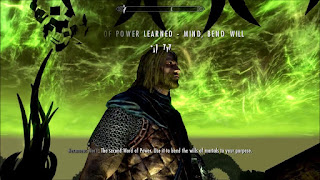After the war, Robert Oppenheimer remarked that the physicists involved in the Manhattan project had "known sin". Von Neumann's response was that "sometimes someone confesses a sin in order to take credit for it."[132]
 |
| What is an exploit if not a daedric word of power? |
There's no written history of the start of the US's cyber capabilities, although there are pretend histories out there, filled with random leaked data to reporters of various programs that mattered less than people think they might have. Perhaps this will change in fifty or so years. I think the early nuclear community was best analyzed in this book (The Making of the Atomic Bomb) from Richard Rhodes. And of course, the early cryptoanalytic community has many good books, but we recently reviewed this one on the blog, and it came to the obvious conclusion that the success of the Allies in cryptography depended primarily on the kind of talent the Germans had exiled or repelled.
This blog is a strategy blog, which means occasional drill-downs into the technical details of policy or technology, but ideally, we want to look at the geopolitical trends that give us the ability to predict the future. That means knowing the history.
But just because there's no written history does not mean there's no history. And one thing I know, without needing to send my blogpost through pre-pub review, is that the early history of Allied Cyber efforts mirrors that of Nuclear and Crypto in that the majority of it was based on the pivotal work of first generation immigrants.
No comments:
Post a Comment